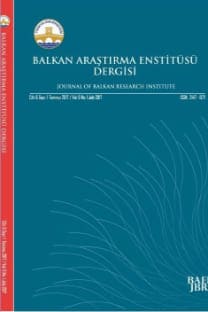HIRİSTİYAN DÜALİST-GNOSTİK BİR TARİKAT OLARAK BOGOMİLİZM ve AVRUPA HERETİK TOPLUMLARINA ETKİLERİ
Bogomilizm, adını Bulgar asıllı “Tanrı’nın sevdiği” anlamına gelen papaz Bogomil’den alan tarihî kimliğinde taşıdığı heretik muhâlefet mânası yanında, dönemin Katolik Kilisesi’nin ve feodalizmin baskılarına karşı Osmanlı fetihlerinin öncüleri alperen hoşgörüsü ile Balkanların İslamlaşmasında etkin rol oynamış Ortaçağ Hıristiyanlığı’nın düalist-gnostik tarikatlarından biridir. Ana Kilise’nin doktrin; politik otoritenin ikbal emelleriyle çatışan teolojik heretik karakterinin sürekli mücadele halinde olduğu bir tarihin öznesi olmuş, içyapısı ile Maniheist desenli tarikat özelliği Balkanlar’da Bulgaristan, Makedonya, Bosna-Hersek, Dalmaçya, Macaristan, Hırvatistan ve Sırbistan’ta cemaati, apokrif kitapları, öğretisi ve bilhassa ruhanî lideri Bogomil ile tarihe mâl olması sonrasında Avrupa’da Fransa ve İtalya topraklarında aynı inançları bir başka form altında sürdürmüştür. Biz bu çalışmamızda tarikatın kimliği adına mizacını yansıtan terimler, beslendiği doktriner kaynak, liderinin ismi, tarihte görülür olduğu dönemde sosyo-feodal ve Kilise otoriteleriyle sürtüşmeleri, tarihten silinmesi sonrasında Albigeois (Albililer) ismi ile Fransa’da, Cathares (Katharlar) adı ile İtalya’da Bogomiller’in süreği görülen hareketler üzerindeki etkilerini konu edeceğiz. Bununla problem üzerine ülkemizde çok sınırlı sayıdaki literatüre karşı, dikkate değer bir hacim tutmakta olan Batılı kaynakların yoğunluğu ışığında kadîm tarihlerden gelen bu gnostik öznenin daha yakından tanınmasına bir katkı hedeflenilmektedir. Kurucusu papaz Bogomil’in salt ismi üzerine oluşturulan etimolojik analizlerde semantik anlam kaymaları, ait olduğu doktrin ve prensiplerinde taviz vermeyen sert tutumu, gösterdiği yayılımlar, çıkış yaptığı coğrafyanın konum ve özelliği ve çökmesi ile tarihe şerh düşen kimliğinde birçok üst ve alt başlıkla değerlendirilmeye değer tarikatı konu edinen çalışmamız bu temalara yoğunlaşmaktadır
BOGOMILISM AS A CHRISTIAN DUALIST-GNOSTIC ORDER AND ITS INFLUENCE IN EUROPE
The name Bogomilism actually comes from a Bulgarian cleric Bogomil which also means “the one whom God loves”. In addition to its historical identity which denotes a heretical opposition, it is one of the Dualist-gnostic orders of the Medieval Christianity which played an active role in the Islamisation of the Balkans through the tolerance of the alperens, the bannerbearers of the Ottoman conquests against the oppressions of the Catholic Church and the feudalism of the time. Bogomilism became the subject of such a history in which it perpetuated a constant struggle due to its theological heretical character that is in conflict with the doctrines of the Main Church and the desires of the political authority. Moreover, Bogomilism made its own history in the Balkans by means of its community, apocryphal books, doctrines and especially its leader Bogomil in Bulgaria, Macedonia, Bosnia and Herzegovina, Dalmatia, Hungary, Croatia and Serbia. Then it pursued the same beliefs in European lands under another form in France and Italy. In this article, we will try to focus on the terms those reflect the nature of this order acting as its identity, the doctrinal roots which nurtures the order, the name of its leader, its conflicts with the social-feudal and the church authorities of the time, and its influences on the movements which are considered to be the continuation of Bogomils after their decadence in France under the name Albigeois and in Italy under the name Cathares. Despite the scarcity of the literature concerning Bogomilism in our country, our main goal is to contribute to an awareness concerning this gnostic order coming from the ancient times under the light of the Western sources those constitute a vast body. As a matter of fact, this order is worth being evaluated with various aspects, and thus, the article focuses on this order whose identity impressed a significant mark in the history the semantic shifts within the etymological analyses formed only by the name of its founder Bogomil, its firm attitude that never makes a concession concerning the doctrines and the principles, its spread, the location and the charecteristics of the geography from which it emerged as well as its decadence
